Speakers
(Alphabetical order)
Franziska Achterberg, Greenpeace, Belgium
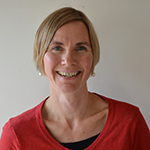
Workshop: National GMO bans – joint strategizing
Joint Workshop: Opt-out: national implementation, national bans, role of the regions
Franziska Achterberg is EU Food Policy Director at Greenpeace European Unit. She joined Greenpeace in 2007 to work on the organisation’s climate and energy campaigns. Before that Franziska worked with the European Transport Safety Council (ETSC). She holds a master degree in linguistics.
Sarah Agapito, GenØk Center for Biosafety, Norway
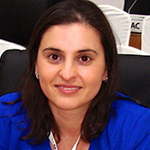
Workshop: Emerging technologies - basic science, limitations, biosafety and regulatory issues
Sarah Agapito is a scientist at GenØk Center for Biosafety in Norway and research collaborator of Centre for Integrated Research in Biosafety at University of Canterbury in New Zealand and Laboratory of Plant Physiology & Genetics at Federal University of Santa Catarina in Brazil. Sarah holds a PhD degree in Plant Genetics. She has been actively involved in ad-hoc risk assessment of GMOs in Brazil, Norway and New Zealand and she was also appointed to the UN Roster of Biosafety Experts in 2013 by the Brazilian Government. In addition, Sarah has been a consultant to multiple government and non-governmental agencies in Brazil and Norway, and has collaborated to the development of several international biosafety courses, the Holistic Foundations for Assessment and Regulation of GMOs – from Genøk and TWN. Her research experience includes plant breeding, plant genetic diversity and conservation, and risk assessment of GMOs. The main goal of her current research is to uncover the roles of transgenes in gene regulation (particular dsRNA) and to apply that knowledge to assessing their safe use in the environment.
Aina Bartmann, Nettverk for GMO-fri mat og fôr., Norway
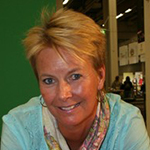
- Leader Network for GMO-free food and feed in Norway ( from 2015)
- Goat farmer 1979 - 1998
- Leader Norwegian Farmers- and Smallholders Union (1992-1996)
- Chairperson board of GenØk- Norwegian Institute for Biosafety (2003-2011)
- Established/organized Farmers Market in Norway 2003 ( 2003 – 2014)
Phil Bereano, Professor Emeritus at the University of Washington, USA
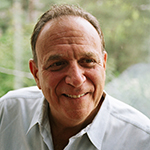
Presentation: Organizing Against Non-State Actors - The Example of the Gates Foundation
Workshop: Zero tolerance for GM contamination in food, feed and seed: Linking global struggles towards a common strategy
Phil Bereano is Professor Emeritus at the University of Washington and community activist, in Seattle. He was a founding member of the Council for Responsible Genetics, the Washington Biotechnology Action Council, and the 49th Parallel Biotechnology Consortium (US, Canada, UK, South Africa, Australia, Columbia). He has been a participant in the negotiation and implementation of the Cartagena Biosafety Protocol and also its Supplemental Protocol on Liability; he is on the Roster of Experts maintained by the Protocol Secretariat (to advise developing countries); he participated in the Codex Alimentarius international negotiations on food safety and on risk assessment, including the seven meetings of its Task Force on Foods Derived from Biotech and the Committee on Food Labeling; and has been a registered NGO delegate to four WTO Ministerial meetings.
Elizabeth Bravo, Network for a GE Free Latin America, Ecuador
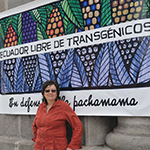
Plenary Session: The problem of Glyphosate tolerant crops in South America
- PhD in Microbial Ecology by the University of Aberyswthyth - Wales
- Coordinator of the Network for a GE Free Latin America
- Member of Accion Ecologica
- Professor at the Universidad Politécnica Salesiana - Quito, and researcher in Political Ecology
- Author of several books and publications on GMOs, agrofuels and biodiversity
Adam Breasley, Our Seeds Our Future Initiative, Indonesia
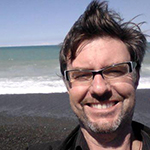
Presentation: Building an Agro-Ecological Asia-Pacific from Hawaii to Bhutan: Stopping GMO Banana Biopiracy
Adam Breasley is a co-founder of 'Our Seeds, Our Future', an ongoing agro-ecological initiative in Indonesia and across the Asia-Pacific advocating biodiversity-based strategies for combating hunger, malnutrition and climate change. Adam is Australian and began his work on food issues in 2005 in Melbourne by starting the community radio program “Food Fight”. More recently Adam has written articles for The Ecologist and organizes events with youth and on agro-ecology.
Lim Li Ching, Third World Network, Malaysia
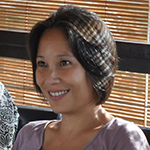
Workshop: Zero tolerance for GMO contamination in food, feed and seed: Linking global struggles towards a common strategy
Workshop: African agriculture under threat: GM crops in the wider context
Lim Li Ching has a B.Sc. in Ecology and an M.Phil. in Development Studies. She coordinates the biosafety programme at Third World Network, an international NGO based in Malaysia. She has been actively participating in the UN Cartagena Protocol on Biosafety negotiations, its related experts’ meetings and other international, regional and national biosafety meetings. She is currently a member of the Ad Hoc Technical Expert Group on Socio-economic Considerations, established by Parties to the Cartagena Protocol. She has been involved in the biosafety capacity building programme of TWN and GenØk-Centre for Biosafety, Norway, and has been on the faculty of the international biosafety course Holistic Foundations for the Assessment and Regulation of Genetic Engineering and Genetically Modified Organisms (2003-2012) and several other regional courses. She is co-editor of the book Biosafety First, published by Tapir Academic Press in 2007.
Taarini Chopra, Canadian Biotechnology Action Network, Canada
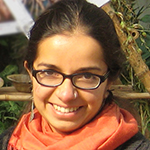
Presentation: Canada: Impacts and Lessons from 20 Years of GMOs
Taarini Chopra works as the Researcher of the Canadian Biotechnology Action Network (CBAN), a campaign coalition of farmer associations, environmental and social justice organisations, and coalitions of grassroots groups. She is also Editor and Publications Coordinator at Seeds of Diversity Canada, a member-based organization that works to preserve the biodiversity in our food by saving heirloom and endangered varieties of food crops and building awareness about seed saving, pollinator conservation, plant and seed heritage, and organic seed production methods. Taarini has worked on organic farms in Canada, was the co-chair of the Waterloo Region Food System Roundtable, and worked with the Global Food Politics Group at the University of Waterloo, where she also completed graduate research on global food policy and the politics of GM crops in India.
Ronnie Cummins, Organic Consumers Association, USA

Ronnie Cummins is co-founder and International Director of the Organic Consumers Association (OCA) and its Mexico affiliate Via Organica. Cummins has been active as a writer and activist since the 1960s, with extensive experience in public education, grassroots mobilization, and marketplace pressure campaigns. He has served as director of US and international campaigns dealing with sustainable agriculture issues including food safety, genetic engineering, factory farming and global warming. From 1992-98 Cummins served as a campaign director for the Foundation on Economic Trends in Washington, D.C. In 1998, he co-founded the Organic Consumers Association, the largest network of organic consumers in the USA. In 2009 he founded Via Organica, a network of organic consumers and farmers based in Mexico City and San Miguel de Allende, Guanajuato. Cummins is a regular lecturer around the world, as well as a regular contributor to online publications. In addition to a series of children’s books called Children of the World, he has also written Genetically Engineered Food: A Self-Defense Guide for Consumers (Second Revised Edition Marlowe & Company 2004).
Dragos Dima, Agribusiness and food industry professional, Romania
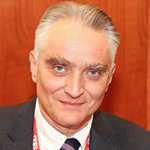
Presentation: "U Turn" is a film for campaigners, decision makers and consumers
Dragos Dima is an agribusiness and food industry professional with more than 20 years experience in management, consulting and business development. Dragos Dima has a broad expertise in seeds, crop protection products and agriculture machinery.
Eva Gelinsky, IG Saatgut, Foundation ProSpecieRara, Switzerland
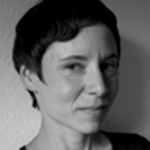
Workshop: Emerging applications: GM trees, stacks and ‘Clearfield' crops
Joint Workshop: New GMO techniques, risk assessment and legal definitions
Eva Gelinsky works for The Initiative for GE-free Seeds and Breeding (IG Saatgut), for the Swiss foundation ProSpecieRara (scientific staff) and as an independent scientist. She is a member of the Federal Ethics Committee on Non-Human Biotechnology in Switzerland and board member of Critical Scientists Switzerland (CSS).
Alejandro Gil, IFOAM EU, Belgium
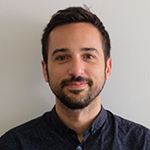
Workshop: Zero tolerance for GM contamination in food, feed and seed: Linking global struggles towards a common strategy
Joint Workshop: The end of the ‘zero tolerance’ policy in the EU? The impact of low level presence of unauthorised GMOs for the food industry and public authorities
Alejandro Gil is a policy coordinator at IFOAM EU. His experience is in campaigning and organising projects on the topic of GMOs. Together with unions, consumer organisations and environmental organisations, he has worked with the GMO-free regional network of the South of Spain with the aim to declare regions GMO-free and to advocate for a moratorium on GMO crop cultivation. He has also worked for the south regional group of Friends of the Earth Spain.
Tina Goethe, Bread for all, Switzerland
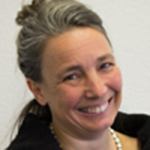
Presentation: Climate Smart Agriculture – grab bag or Pandora’s Box?
Tina Goethe works for Bread for all, the Development Service of the Protestant Churches in Switzerland. As the head of the Right to Food and Climate Change team within the development policy department she has been engaged with issues around food sovereignty, seed diversity, GMO-free agriculture and agro-ecology for more than 10 years and is a member of the Swiss national FAO commission.
Mamadou GOÏTA, Development socio-economist, Mali
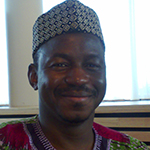
Workshop: African agriculture under threat: GM crops in the wider context
Mamadou GOÏTA is a development socio-economist and a specialist in education and training systems. He teaches at the University of Ouagadougou (Burkina Faso), at the “Applied Economic National School” ENEA, Dakar (Senegal) and CESAG (African Management Centre), Dakar, Senegal, the Institute for Security Studies (ISS) in Addis Ababa as a course Director and CODESRIA as the 2014 Governance Institute Director. He is also the Executive Director of the Institute for Research and the Promotion of Alternatives in Development (IRPAD/Afrique), Bamako, Mali, former Executive Secretary of ROPPA (West Africa small scale producers’ network) and current special advisor for ROPPA’s board and executive Secretariat. In addition to his work with many NGOs and social movements, he is a member and founder of the regional co-ordinating group of the “Coalition pour la Protection du Patrimoine Génétique Africain” (COPAGEN) and AFSA (Alliance for Food Sovereignty in Africa).
Graciela Cristina Vizcay Gomez, Lawyer, Argentina
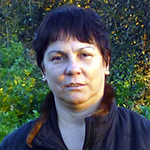
Presentation: FUMIGACIONES: Glyphosate, the urgent need to protect health and the environment
Graciela Cristina Vizcay Gomez is a lawyer, notary and environmental journalist. Sponsor of those affected by spraying with glyphosate-based herbicide, GMOs in Argentina. She writes for the Argentina Association of Environmental journalists and several other media outlets. She reports on cases of victims of pesticides in Argentina and argues that 'agrocidio' is the constant bombardment of the population with poisons, despite there being no threat from the victim. His work can be found on the website ZERO BIOCIDAS.
Frédéric Guérin, STOP OGM Pacifique, New Caledonia
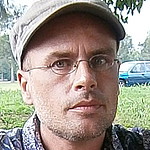
Presentation: 22 Pacific Island Countries, a region free of GMO... regulation!
Frédéric Guérin is the president of the caledonian NGO "STOP OGM Pacifique" which advocates for a GM-free Pacific- in a region where only two island countries and PTOM (among 22) have a regulation on GMOs despite the threat of GM contaminations from Australia, Hawaii and Asia. Recently the association obtained a ban of the GM seeds importation for fruits and cereales and still push the local governement for the adoption of a GM labelling. GM papaya contamination, biopiracy cases, loss of traditional seeds and pratices, massiv importations of seeds and food... which are the issues of the Pacific Region. As a consultant (COMPOST&HUMUS www.composthumus.com ) Frédéric promotes agroecology pratices, preservation of local agrobiodiversity and soil fertility.
Bernard Yangmaadome Guri, Centre for Indigenous Knowledge and Organizational Development, Ghana
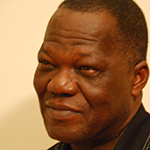
Workshop: African agriculture under threat: GM crops in the wider context
Bernard Yangmaadome Guri was born in Ghana and holds an MSc in Development Studies and a Diploma in Rural Policy and Project Planning from the Institute for Development Studies in The Hague. He is currently a doctoral student at the University of Cape Coast, the same institution where he obtained a Bsc degree in Agricultural Science and a Diploma in Education. He is a development practitioner with a special interest in Indigenous knowledge and institutional development. He co-founded the Ecumenical Association for Sustainable Agriculture (ECASARD) and the Center for Indigenous Knowledge and Organizational Development (CIKOD) of which he is the current Executive Director. He is the Regional Co-ordinator of COMPAS Africa and the Chairman of the Alliance for Food Sovereignty in Africa (AFSA). He served as Programmes Director with the Konrad Adenauer Stiftung of Germany and is a board member of Groundswell International, a global development organization based in Washington, USA. He is now a visiting lecturer at the COADY International Institute of the St Francis Xavier University in Canada where he teaches courses in Local and Indigenous Knowledge for Community-Driven Development.
Alice Güntert, Matchmaker for Sacred Solutions: Permaculture Commodity Production, Switzerland
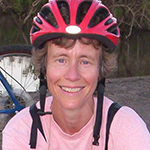
Presentation: The Dawn of Common Culture: Permopoly
Permopoly rejuvernates African Pride with Indian Ingenuity to attain gain in the eyes of WTO and Co, without GMO. Long term housewife / mother ; graduate of the College of Agriculture & Life Sciences, Cornell University, Ithaca, USA BS Plant Science 1986. Playground design and care, Reutigen, Switzerland….hobby follower of the anti GMO Movement since 2005 and designer of Family style board game: The Dawn of Common Culture: Permopoly. Together with the ongoing European Citizens Initiative, Rights of Nature from Mumta Ito, and hopefully in future with the Katharina Werk, Basel, I hope to entice the World Financial Community to recognize the enormous economic potential in cooperative human biodiversity. Reflection on human development lead me to conclude that human communication and subsequent social organization and even economic goals are emergent properties of the natural environments from which these communities arise. Permopoly underscores human epigenetik relation and annihilates the fundamental „need“ for genetic manipulation.
Walter Haefeker, German Professional Beekeepers Association, Germany
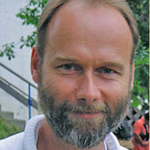
Presentation: Sources of contamination of honey with genetically modified material
Walter Haefeker is a professional beekeeper in Bavaria, south of Munich, Germany. He serves on the board of directors of the German Professional Beekeepers Association since 2004 and as President of the European Professional Beekeeping Association since 2008. In this capacity he has been working on the critical issues facing Beekeepers today including pesticides, GM-crops and intensive agricultural practices. Since 2011 he is the coordinator of the World Beekeepers Federation's (Apimondia) Working Group on GMOs and the author of many articles on the relationship of beekeeping and agriculture. Walter Haefeker has also represented the beekeeping with presentations and papers at scientific conferences dealing with the coexistence issues around GM-crops. His beekeeping operation is certified organic.
Benedikt Haerlin, Foundation on Future Farming, Germany

Plenary Session: Industrial Agricultural Policy Trends & Bio-economy
Benedikt Haerlin works for the German Foundation on Future Farming in Berlin, Germany. He co-ordinates the European initiative "Save our Seeds" to keep seeds free of GMOs and works on European Agricultural Policy issues and networks. He represented NGOs in the Worldbank and UN led IAASTD from 2002-2008. Haerlin was the global coordinator of Greenpeace International’s Genetic Engineering Campaign from 1996 to 2002 and worked for the organisation since 1990. From 1984 to 1989 Haerlin served as a Member of the European Parliament (Green Group), where he first specialized in genetic engineering issues. Before he worked as a journalist and editor.
Jessica Harrison, GM-Free Australia Alliance, Australia
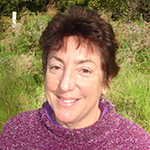
Presentation: GMO-Free in Australia, New Zealand and the Western Pacific
Jessica Harrison has been active in GMO-free campaigning since 2000 in the UK and in Australia from 2003. She is the co-ordinator of the GM-Free Australia Alliance, which links groups in our region and provides a united voice for GMO-free businesses, farmers and consumers. As well as being an active member of MADGE, mothers and others informing the public on GMOs, Jessica is a GM Cropwatch technician, testing and removing GM canola weeds in her home state, Victoria, and helping farmers test for GMO contamination in their paddocks.
Angelika Hilbeck, European Network of Scientists for Social and Environmental Responsibility, Switzerland
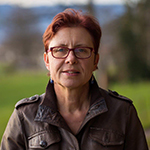
Plenary Session: New Scientific Challenges
Workshop: African agriculture under threat: GM crops in the wider context
Workshop: Emerging applications: GM trees, stacks and ‘Clearfield' crops
Angelika Hilbeck is the acting Chairperson of ENSSER (European Network of Scientists for Social and Environmental Responsibility). She leads a research group as senior scientist and lecturer at the Institute of Intergrative Biology at ETH Zurich and is an adjunct faculty to Genoek, the Centre for Biosafety, Tromsoe, Norway. Her research focuses on biosafety and risk assessment of GMOs in the context of agroecology and biodiversity. Her research and conceptual work also contributes to the implementation and shaping of EU Directives regulating GMOs, the (UNEP CBD) Cartagena Protocol on Biosafety and capacity building in developing countries. Broader fields of engagement include technology development towards a democratically legitimated, sustainable global future and she actively contributes to the debate on biosafety, international agriculture, hunger and poverty alleviation. In 2006, she was appointed as a lead author of the International Assessment Agricultural Science Technology for Development (IAASTD). She is a member of the board of directors of the Vereinigung Deutscher Wissenschaftler VDW (Federation of German Scientists) and of the development organisation 'Bread for All'.
Nina Holland, Corporate Europe Observatory, Belgium
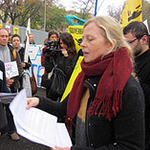
Workshop: TTIP and what is at stake for European GMO rules?
Nina Holland works with Corporate Europe Observatory, a lobby watchdog organisation based in Brussels, focusing on agribusiness issues. She has done campaigning on soy issues, through the project 'La Soja Mata' and is part of the friends of the Field Liberation Movement in Belgium, a direct action movement against GMOs.
Josef Hoppichler, Federal Institute for Less-Favoured and Mountainous Areas, Austria
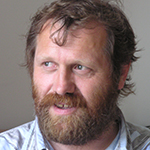
Presentation: Austria as a GMO-free Zone – some remarks and lessons learned
Joint Workshop: The end of the ‘zero tolerance’ policy in the EU? The impact of low level presence of unauthorised GMOs for the food industry and public authorities
Permanent researcher of the “Federal Institute for Less-Favoured and Mountainous Areas” - Vienna; projects on „Economic and Ecological Effects of Biotechnology and Genetic Engineering on Agriculture“ and on „Concepts of GMO-free Environmentally Sensitive Areas“; expert for the Austrian Parliament concerning the “Referendum on Genetic Engineering”; Austrian delegate to the OECD “Working Party on Biodiversity, Water and Ecosystems”; publications on GMO-free zones and limits of agro-biotechnology; lecturer on “Economics and Politics of Natural Resources” at the University of Natural Resources and Applied Life Sciences, Vienna.
Ulrike Höfken, State Minister of the Environment, Agriculture,Nutrition, Viticulture and Forestry of Rhineland-Palatinate, Germany
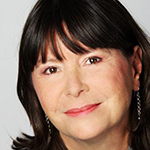
- Born 14th of May, 1955 in Düsseldorf, Germany, married, three daughters
- 1974 High school graduation, then studies of agronomy, political economics and romance philology at the University of Bonn, Germany. Internships and practical experiences in industry and farming, inter alia in Latin America.
- 1981 Degree as graduated agronomy engineer
- Since schooldays active in school politics and university politics, in environmental, consumer and farming politics as well as in development politics, inter alia co-founder of the Consumer Initiative and Pestcide Action Network
- 1981 – 1994 Work experience as collaborator of the Deutsche Bundestag (German parliament), in the European Parliament, in the Chamber of Agriculture of Rhineland-Palatinate, at the Institute of Physics and Agricultural Engineering of the University of Bonn, with the Federal Union of Environmental Citizens‘ Initiatives and as a farmer in the Eifel mountains
- 1994 – 2011 Member of Parliament in the Deutsche Bundestag
- 1998 – 2005 Vice Chair of the Committee on consumer protection, nutrition and agriculture of the Bundestag
- 2005 – 2009 Chair of the Committee on nutrition, agriculture and consumer protection
- 2009 – 2011 Vice Chair of the Committee on nutrition, agriculture and consumer protection
- 1998 -2011 Member of the Committee on the Affairs of the European Union (discontinued from 2005 – 2009)
- Further membership in various committees of the Bundestag (1994 – 2011): inter alia committee of enquiry on „law and ethics in modern medicine“, environmental committee, subcommittee „globalisation“, chair of the Biotech working group
- Since 18th of May, 2011 State Minister of the Environment, Agriculture,Nutrition, Viticulture and Forestry of Rhineland-Palatinate, Germany
- Since 1989 member of the Greens party
Tsuneko Kimura, Seikatsu Club Consumers Co-operative Union, Japan
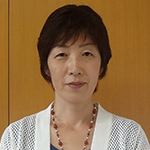
Presentation: The Consumer Led Anti-GMO Movement in Japan
A member of Seikatsu Club (Consumer’s Cooperative), Chiba, Japan since 1997. She became a member of board of directors in 2005, the vice-chair in 2013, and the chair of board of directors in 2013. She was in charge of promoting, developing, and improving joint-purchase goods, as well as organizing a tour to visit producers as a member of consumption committee. These activities became an opportunity for her to be involved in GMO food issues. She started wild-growing GM canola investigation in 2005. In November, 2014, she attended MOP7 in Korea, and gave a presentation on the investigation at the side-event. She is also a participant of GMO Free Zone Campaign in Chiba.
Jonathan R. Latham, Bioscience Resource Project, USA
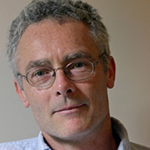
Workshop: Emerging technologies: Basic science, limitations, biosafety and regulatory issues
Jonathan R. Latham, PhD, is co-founder and executive director of the Bioscience Resource Project, which is the publisher of Independent Science News. He has published scientific papers in disciplines as diverse as plant ecology, virology, and genetics.
Yoke Ling, Third World Network, China
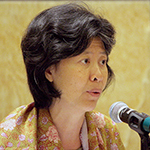
Plenary Session: Global Corporate Rule
CHEE Yoke Ling is the Director of Programmes of Third World Network (TWN) and based in the Beijing office of TWN. She obtained a Bachelor in law degree from University of Malaya (Malaysia) and a Masters in Law from University of Cambridge (UK). She was a member of the Faculty of Law, University of Malaya (1984 to 1989), and Honorary Secretary, Friends of the Earth Malaysia (1989-1993) before joining TWN on a full time basis. She has been very active in policy research and advocacy since the mid-1980s, focusing on sustainable development policy and governance issues from the perspective of developing countries. Yoke Ling has worked closely with key developing-country negotiators, scientists, and NGOs on climate change, biodiversity and biosafety as well as intellectual property issues since the 1990s. She has been part of the senior management team for TWN since 2007.
Sachiko Maki, Green Coop Cooperative, Japan
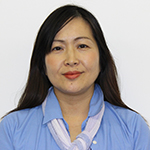
Presentation: The Consumer Led Anti-GMO Movement in Japan
Joined Green Coop Cooperative in 1999, and board of directors from 2004 to 2008. She has been the chair of board of directors of Green Coop Kumamoto, Japan since 2012. She successfully led the 10th anniversary of Japan’s GMO Free Zone Conference held in March 2015 in Kumamoto, and boosted expansion of GMO Free Zone in Japan. She has also been working hard to stop wild growing GM canola and regulate GM crops through municipal ordinances.
Mariam Mayet, African Centre for Biodiversity, South Africa
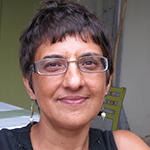
Workshop: African agriculture under threat: GM crops in the wider context
Plenary session: The African GMO battle
Mariam Mayet holds BA LLB, LLM degrees, which she obtained from the University of the Witwatersrand, Johannesburg South Africa. In 2004 Mariam found and now is the director of the African Centre for Biodiversity (ACB), a non-profit organisation based in Johannesburg, South Africa. Mariam has actively participated in several international negotiations including those culminating in the Cartagena Protocol on Biosafety and the Nagoya Protocol on Liability and Redress. Under Mariam’s leadership, the ACB has earned a respected record of evidence based work and plays a vital role in the food sovereignty struggles on the African continent. The ACB champions some of the new thinking on agriculture policy, rooted in agro-ecological discourses.
Jim Mc Nulty, Co-Founder of Genetic Engineering Network, UK
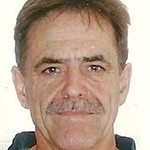
Presentation: Experiences with GMO since 1996 in UK
Jim Mc Nulty is a practising Physical and Yoga therapist, for many years. He is also a grower and passionate about seed and their significance in culture. Jim had a recent experience appearing with Vandana Shiva at Scumacher College Totnes Devon in Dartington Great Hall. Two big influences in Jims life have been Rudolf Steiner and Shumachers book 'small is beautiful.
Eric Meunier, Inf'OGM, France
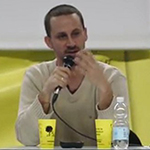
Workshop: Emerging technologies: Basic science, limitations, biosafety and regulatory issues
Workshop: Emerging applications: GM trees, stacks and ‘Clearfield' crops
Eric Meunier has been working for the French citizen watchdog Inf'OGM since 2002 as a scientific journalist mainly focusing on GMOs and some other techniques of biotechnology. Graduated in biochemistry in Université Pierre et Marie Curie in 2000, he has been working for French NGOs since then. Among different papers, he coordinated the Inf'OGM's report "New techniques for the alteration of the living, for whom? Why?" which was translated into english in August 2012.
Heike Moldenhauer, Friends of the Earth Germany
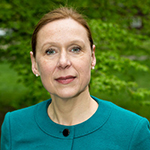
Workshop: Zero tolerance for GM contamination in food, feed and seed: Linking global struggles towards a common strategy
Joint Workshop: The end of the ‘zero tolerance’ policy in the EU? The impact of low level presence of unauthorised GMOs for the food industry and public authorities
Head of GMO and TTIP Policy, Friends of the Earth Germany. Member of the Friends of the Earth Europe Steering group on GMOs.
Bridget Mugambe, Alliance for Food Sovereignty in Africa, Uganda
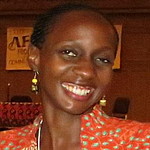
Workshop: African agriculture under threat: GM crops in the wider context
Bridget Mugambe holds a MA in Social Sciences. She has been an anti GMO campaigner since 2005 and has led several national campaigns in the fight against GMOs and harmful GMO legislation. She is passionate about food sovereignty and social justice but also has several years of experience engaging on bilateral and multilateral trade negotiations and agreements such as the EAC-EU Economic Partnership Agreements. She is currently working with the Alliance for Food Sovereignty in Africa as a Policy Advocate.
Sabrina Nafisa, African Centre for Biodiversity, Tanzania
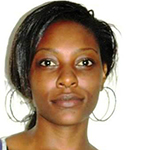
Workshop: African agriculture under threat: GM crops in the wider context
Sabrina Nafisa is the Outreach and Advocacy Officer for African Centre for Biodiversity based in Tanzania. Her work involves campaigning, networking and advocacy around biosafety, seed, food sovereignty and farmer’s rights, this through liaising with ACB’s partners and the Tanzania Alliance for Biodiversity to facilitate information sharing and advocacy. She has an environmental background and has been engaged in the NGO sector, with experience working on projects at the grassroots level with farmers on organic farming in Tanzania and also with Civil Society Organizations within the Tanzania Alliance for Biodiversity on Biosafety, farmers rights and food sovereignty issues. She has also attended workshops on Biosafety organized by Genok alumni and other organizations within Tanzania.
Steffi Ober, Federation of German Scientists, Germany
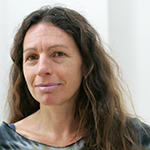
Workshop: What happens to Bioeconomy?
Steffi Ober is an initiator and co-founder of Forschungswende, a platform of CSOs for more transparency and participation in research and innovation policy, hosted by VDW e.V. (Federation of German Scientists). She is the Policy Officer for Sustainable Research at the Union for Nature Conservation, NABU e.V. and passionate about developing a new deliberative governance of R&I supporting a technological as well as societal transition toward more sustainable ways of living. Steffi Ober studied Veterinary Medicine and Public Policy.
Gabriel Paun, Agent Green, Romania
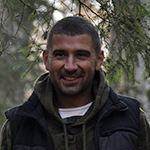
Presentation: "U Turn" is a film for campaigners, decision makers and consumers
Gabriel Paun is an international environmental and animal welfare campaigner. He has B.Sc. in Ecology and M.Sc. in Ecotourism. He has been GMO campaigner since 2001 with Greenpeace, Ecosens and since 2009 with Agent Green, the organization that he established. He is also a forest campaigner working to ban logging in National Parks and to protect Europe’s Last Intact Forest Landscape. As an animal welfare campaigner he supports the FOUR PAWS International team where he convinced Toblerone, Milka and other big players to stop using eggs from caged hens. He also worked to improve the life of caged rabbits, farmed buffalo, against canned hunting, use of wild animals for entertainment, animal testing and the illegal trade of companion animals.
Heidemarie Porstner, GLOBAL 2000 - Friends of the Earth Austria
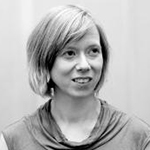
Workshop: National GMO bans – joint strategizing
Heidemarie Porstner studied nutritional science at the Universities of Vienna, Milan and Rome. Since 2011 she has worked for GLOBAL 2000 - Friends of the Earth Austria and in October that year she became an Anti-GMO Campaigner. She was responsible for the campaign "Freiheit für die Vielfalt" (Freedom for Diversity) against the EU-Seed regulation. She also campaigns against Transatlantic Trade Deals, such as CETA and TTIP the EU.
Christof Potthof, Gen-ethical Network (GeN), Germany
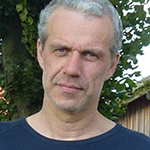
Workshop: What happens to Bioeconomy?
Christof Potthof is a full staff member of Gen-ethical Network (GeN), based in Berlin, Germany. The organization works on a broad range of biotechnology issues, including genetic engineering in agriculture and food production, reproductive technologies and biopolitics. Christof has a German diploma in biology. He works in several coalitions on the local, regional, national and the European level. Christof is one of the editor‘s of GeNs bi-monthly journal GID (published in German).
Tobin Robinson, European Food Safety Authority, Belgium
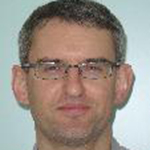
Workshop: Emerging technologies - basic science, limitations, biosafety and regulatory issues
Tobin Robinson is the Acting Head at EFSA’s Science Strategy and Coordination department and head of EFSA’s Scientific Committee and Emerging Risks unit. The main task of the Scientific Committee is the preparation of scientific advice in the area of new and harmonised approaches for risk assessment of food and feed; included in this is putting in place a process for the early identification of emerging risks in the European food and feed chain, as well as preparation for responding to urgent issues. He has previously worked in the dairy industry and started his career at the Reading laboratory of the Institute of Food Research, working on microbiological food safety. He graduated from Cardiff University where he obtained both a degree and PhD in microbiology.
Ercilia Sahores, Political Scientist, Argentina
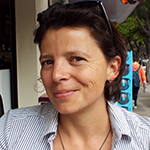
Ercilia Sahores is a Political Scientist from Argentina. Ercilia has worked as Executive Director for several grassroots organizations in Latin America. She is currently the Political Director for Via Orgánica, OCA´s Mexico-based sister network that focuses on anti-GMO campaigning, labeling, defending consumer rights and organic regenerative agriculture.
Mute Schimpf, Friends of the Earth Europe, Belgium

Workshop: TTIP and what is at stake for European GMO rules?
Plenary session: TTIP-CETA and corporate rules, Mute Schimpf
Joint Workshop: Trade agreements and GMO-free Europe
Mute Schimpf studied Organic and International Agriculture. After working for several NGOs in Germany (as AbL, the German Member of Via Campesina and with the Catholic Development NGO Misereor). Since June 2010 she has been a Campaigner for Friends of the Earth Europe.
Lucy Sharratt, Canadian Biotechnology Action Network, Canada
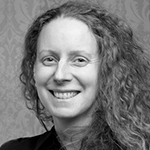
Workshop: The Anti-GMO Movements in North and South America: A Call for Increased Global Cooperation and Solidarity
Workshop: Zero tolerance for GMO contamination in food, feed and seed: Linking global struggles towards a common strategy
Presentation: Canada - Impacts and Lessons from 20 Years of GMOs
Lucy Sharratt works as the Coordinator of the Canadian Biotechnology Action Network (CBAN), a campaign coalition of farmer associations, environmental and social justice organisations, and coalitions of grassroots groups. Lucy previously worked as a campaigner and researcher on the issues raised by genetic modification at the Sierra Club of Canada and the Polaris Institute. Lucy also coordinated the International Ban Terminator Campaign in 2005/06.
Ricarda A Steinbrecher, EcoNexus, UK

Workshop: Emerging technologies: Basic science, limitations, biosafety and regulatory issues
Workshop: Emerging applications: GM trees, stacks and ‘Clearfield' crops
Ricarda Steinbrecher is a molecular geneticist and developmental biologist based in the UK. Since 1995 she has worked on GMOs, their risks and potential consequences to health, food security, agriculture, biodiversity and ecosystems and issues related to patents. Her recent focus has been on new GM breeding technologies and synthetic biology. Other fields of expertise are GM trees, GM mosquitoes, Terminator technologies (GURTs - genetic use restriction technologies). She has engaged in the UN-led international negotiations and implementation of the Cartagena Protocol on Biosafety of genetically modified organisms since 1995 and served on its Ad Hoc Technical Expert Group (AHTEG) on Risk Assessment and Risk Management of Genetically Modified Organisms 2008-2013. She is on the board of directors of several organisations, including ENSSER (European Network of Scientists for Social and Environmental Responsibility). She is presently co-director of EcoNexus and represents the Federation of German Scientists at UN meetings and international negotiations.
ANDRÁS SZÉKÁCS, Agro-Environmental Research Institute of the National Agricultural Research and Innovation Centre, Hungary
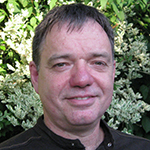
Workshop: Emerging technologies - basic science, limitations, biosafety and regulatory issues
ANDRÁS SZÉKÁCS is a chemical engineer (biochemist) and director of the Agro-Environmental Research Institute of the National Agricultural Research and Innovation Centre in Hungary. His initial research was focused on the development of environmentally friendly and biorational pesticides, insect biochemistry and structure-activity relationship studies. Later he turned towards pesticide residue analysis by instrumental (GC-MS) and immunoanalytical (ELISA, immunosensor) methods, and bioanalytical studies on genetically modified plants. He is currently a Professor and primary member of the Environmental Science Doctoral School of Szent István University and a lecturer at the Budapest University of Technology and Economics, Hungary. Currently he is a Member of the Management Board of the European Food Safety Authority (EFSA), member of the Scientific Advisory Commitee of the OECD Co-operative Research Rrogramme (OECD CRP) and member of the Board of the European Network of Scientists for Social and Environmental Responsibility (ENSSER).
Beatrix Tappeser, State Secretary at the Hessian Ministry for the Environment, Climate Change, Agriculture and Consumer Protection, Germany
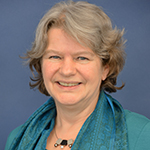
Plenary Session: Opt-out: How to keep the EU GMO-free?
After completing her doctorate in biology in Bonn, she became a Research Associate at the Institute of Molecular Biology and Biochemistry in the Department of Medical Research at the University of Berlin. She was a research scientist for ‘The Green Party’ in the German Parliament for the Enquête-Commission on the ‘Opportunities and risks of genetic engineering’. She was a board member and executive vice speaker of the Öko-Institut e.V. from 1987-2004, where she coordinated the work on genetic engineering. Her main area was the technology assessment of genetic engineering in agriculture, food and the possibility o fits use in a closed system. From 2004 to 2014 she was head of division at the Federal Agency for Nature Conservation. Since January 2014 she has worked as State Secretary at the Hessian Ministry for the Environment, Climate Change, Agriculture and Consumer Protection.
Christoph Then, Testbiotech, Germany
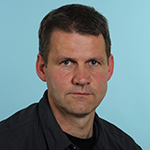
Plenary Session: New Scientific Challenges
Workshop: Emerging applications: GM trees, stacks and ‘Clearfield' crops
Christoph Then is executive director of Testbiotech. Testbiotech is acting as an independent expert group, dealing with impact assessment of biotechnology. Testbiotech promotes independent research, examines ethical, social and economic issues and assesses risks to health and the environment. “No Patents On Seeds!” is an international coalition of civil society groups that is calling for the prohibition of patents on plants and animals. He also acts as a Coordinator for the Coalition "No Patents on Seeds". He studied veterinary science and has been working for about 20 years on issues in the field of biotechnology. From 1992 until 1998 he coordinated the No Patent On Life! campaign in Germany. Up until the of 2007 he was Greenpeace Germany’s expert and also head of department on agriculture, genetic engineering and consumer affairs.
Pat Thomas, Beyond GM campaign, UK
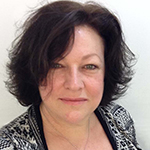
Presentation: Beyond GM - A Letter from America
Pat Thomas is the director of the Beyond GM campaign in the UK. She is a former editor of the Ecologist magazine, an author and an award winning campaigner in food and health.
Corinna Zerger, Greens/EFA Group EP, Brussels
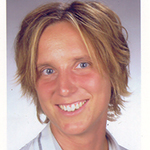
Workshop: Dolly for dinner?! What is at stake in the recent discussions on "clone food"?
Corinna Zerger is advisor of the Green group in the European Parliament for the Committee on the Environment, Public Health and Food Safety. After her studies in Agronomy, she has been working on organic and sustainable farming policies; with NGOs, in public administration and in research. She is working for the Greens/EFA group since 2008.
